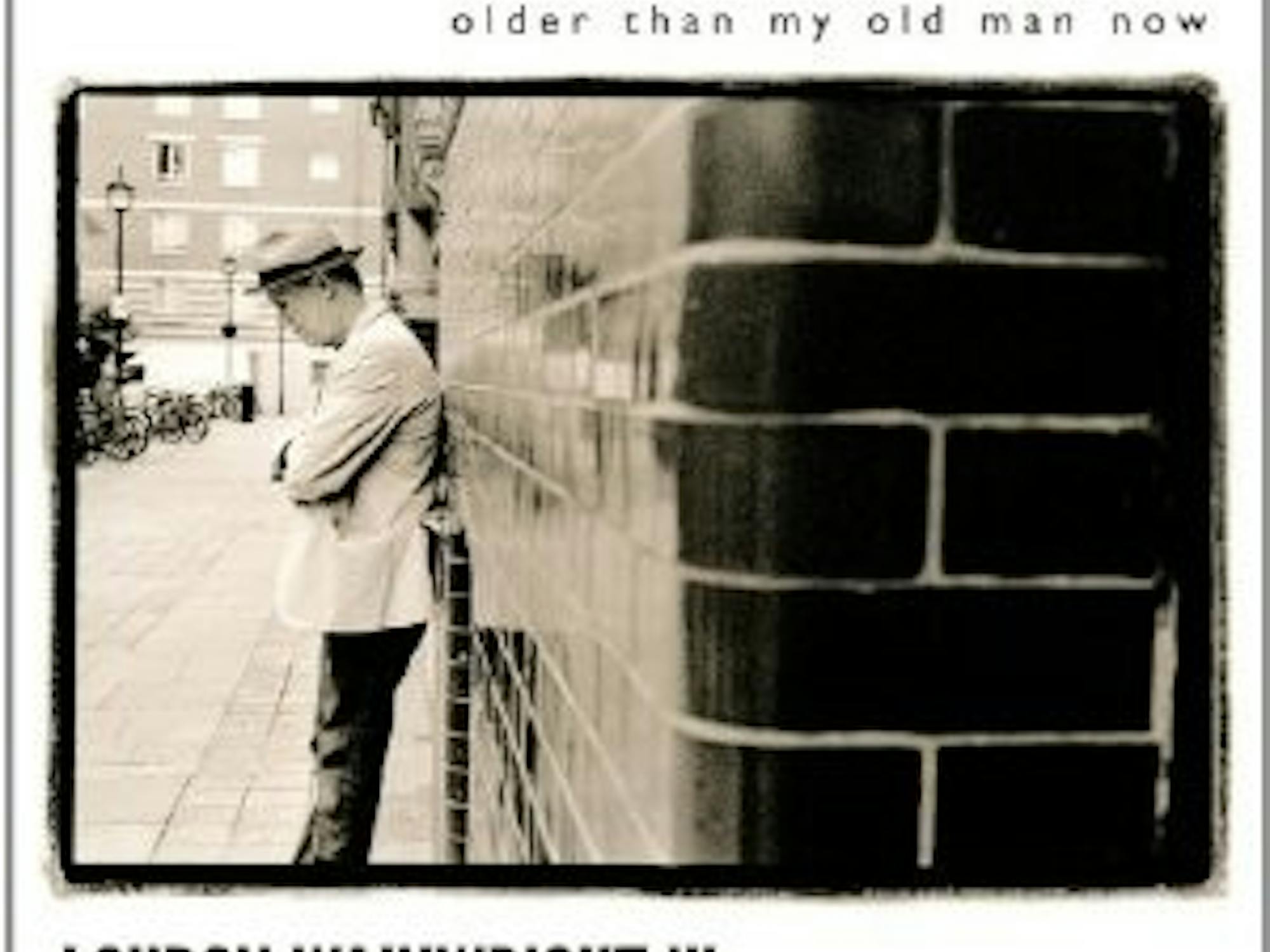As musicians get older, the natural contemplation of death can result in more thought, emotion and personal ideas in their music. Often, this culminates in a “mortality” album.
For aging singer-songwriters, mortality albums are almost a given. The three best albums of Bob Dylan’s later career, “Time Out of Mind,” “Love and Theft” and “Modern Times,” made it clear that death was on his mind. Warren Zevon recorded “The Wind” after being diagnosed with cancer. Just this year, Leonard Cohen put out “Old Ideas,” a mortality album that wound up being one of his best in a while.
Mortality albums are common, but “Older Than My Old Man Now,” the latest album by Loudon Wainwright III, is notable. Listening to it, it doesn’t seem like Wainwright just intended for the album to be a mortality album; it seems like he intended for it to be the
definitive mortality album.
Wainwright was never the most popular artist, nor was he the most critically adored one. He began performing at folk-clubs in the late 1960s, released his first album in 1970 and had a hit in 1973, when his comical classic “Dead Skunk” reached number 16 on the charts. After that, Wainwright never managed to have another hit on the album charts, although he did become quite big in the U.K., and his music became very hit-and-miss.
Leaning more towards humor than many contemporaneous artists, Wainwright has always been a very comedic songwriter. But as he got older, his work became more serious, detailing family troubles with more sadness and regret than he ever seemed to have in him. Now 65 years old, he has put all his emotions to work in “Older Than My Old Man Now.”
Two events in Wainwright’s life inspired the songs on “Older Than My Old Man Now”: the death of his ex-wife, Kate McGarrigle, and his realization that he had surpassed his own father’s age of death. Both of these events come into play in the title track, where Wainwright finishes by singing, “Not only older than my old man ever was, but I’m guilty, I’ve outlived my ex.” In the same song, Wainwright also makes an excellent point about life and death—when somebody dies at 63, it’s way too young, but when they are still alive at 64, it’s awful old.
These ideas are what one would expect somebody to think about as they reach their mid-60s, but with Wainwright it’s bizarre. At least Dylan has always been thoughtful and Cohen has always been dreary, making their death records unsurprising. Wainwright is a goofy songwriter who had a hit with a song about a skunk, so hearing him struggle to keep death in context is strange.
With all that said, humor is not absent from “Older Than My Old Man Now.” “Double Lifetime,” sung with Ramblin’ Jack Elliott, shows the two of them wishing for extra time, and wondering if eating yogurt will magically grant it to them. It’s the funniest and most quotable track on the album. Meanwhile, “My Meds” and “I Remember Sex” are attempts at comedy so over-the-top that there’s a chance everybody will have a different opinion about them.
The comedy is not the focal point, however, and the serious moments are where Wainwright shines. “Somebody Else” details how, as you grow older, a friend dying becomes less of a rare occurrence and more of an expected event.
On two songs, “Older Than My Old Man Now” and “The Days That We Die,” he opens by reading pieces written by his father, a Life magazine columnist, and it’s hard not to be emotionally affected when hearing this. Perhaps the album’s saddest moment, “Over the Hill” is a song that Wainwright wrote with McGarrigle decades before her death, sung with their daughter Martha Wainwright.
The album reaches its peak at the end with “The Days That We Die,” a song about change sung with Wainwright’s son Rufus Wainwright, and “Something’s Out to Get Me,” arguably the best song on the album.
Not everything on “Older Than My Old Man Now” works. “In C” could have been one of the best songs on the album if it weren’t so tedious, and “Dateline” is pretty forgettable, although it’s saved by a terrific sax performance by Steve Elson. “I Remember Sex” is the one legitimately bad song, an attempt at both comedy and sentiment that fails at both.
Roger Ebert once described “One Flew Over the Cuckoo’s Nest” as being, “So good in so many of its parts that there’s a temptation to forgive it when it goes wrong.” That applies to “Older Than My Old Man Now” too. It is a flawed masterpiece that even during its most imperfect moments, never lets you forget how well-intended, well-written and well-performed it is—a wonderful achievement for the goofy singer-songwriter with a song about a skunk.










